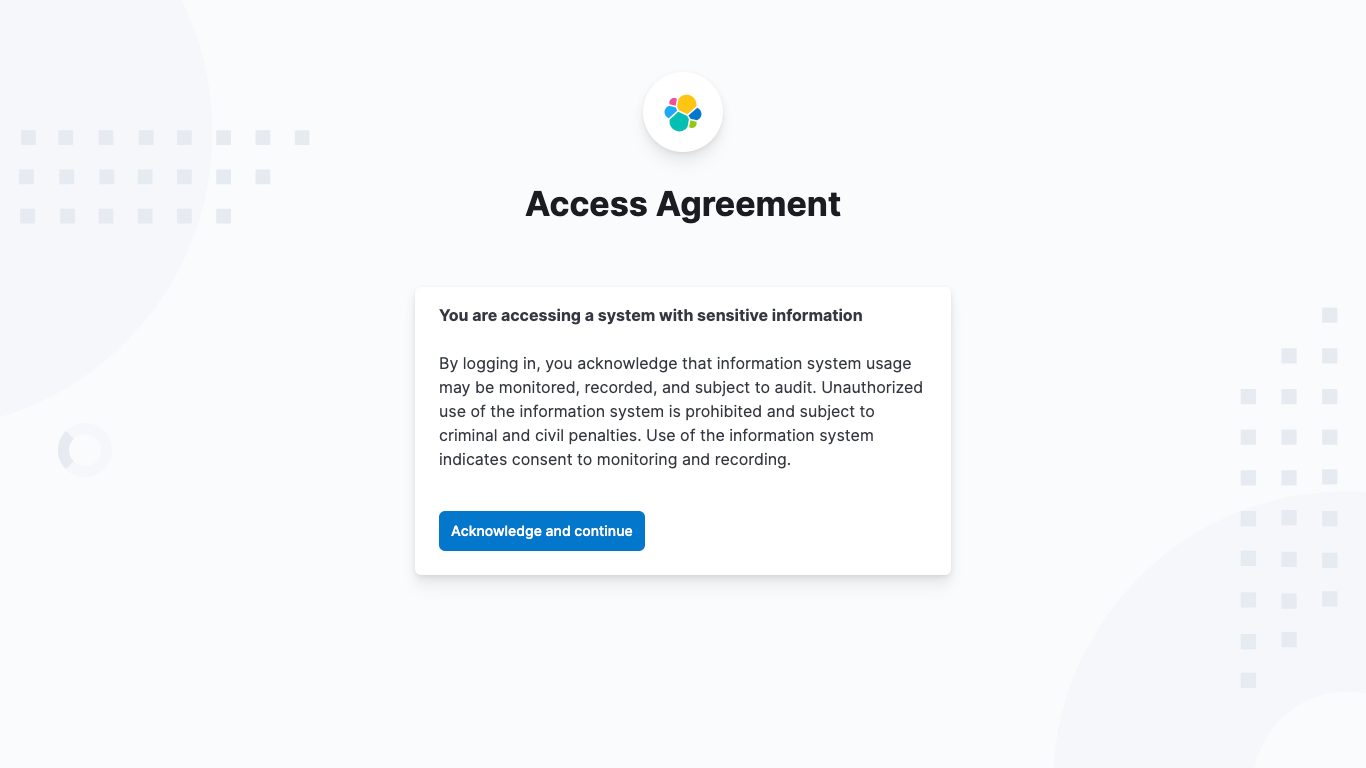IMPORTANT: No additional bug fixes or documentation updates
will be released for this version. For the latest information, see the
current release documentation.
Access agreement
edit
IMPORTANT: This documentation is no longer updated. Refer to Elastic's version policy and the latest documentation.
Access agreement
editAccess agreement is a subscription feature that requires users to acknowledge and accept an
agreement before accessing Kibana. The agreement text supports Markdown format and can be specified using the
xpack.security.authc.providers.<provider-type>.<provider-name>.accessAgreement.message setting.
You need to acknowledge the access agreement only once per session, and Kibana reports the acknowledgement in the audit logs.
Here is an example of defining an access agreement in kibana.yml:
xpack.security.authc.providers:
basic.basic1:
order: 0
accessAgreement:
message: |
**You are accessing a system with sensitive information**
By logging in, you acknowledge that information system usage
...(shortened)
When you authenticate using basic.basic1, you’ll see the following agreement that you must acknowledge before you can access Kibana:
